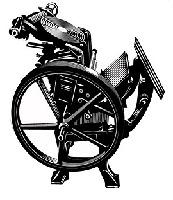- Posts: 15745
- Thank you received: 320
Wisconsin - Some Things to Think About
- ScienceChic
-
 Topic Author
Topic Author
- Mountain Champion
-

http://www.alternet.org/economy/150018/ ... _can_help/
4. Public Employees Are Not The Problem: Study http://www.cepr.net/documents/publicati ... 010-05.pdf after study http://www.epi.org/analysis_and_opinion ... earn_less/ shows the public employees do not receive extravagant compensation, and that the problems with state public pension systems are largely overblown. http://www.cbpp.org/cms/index.cfm?fa=view&id=3372 State budgets are reeling from an economic recession caused by reckless Wall Street speculators, top end tax cuts and corporate tax avoidance. The projected shortfalls in public retirement benefits derive mostly from skyrocketing health care costs thanks to private insurers, and poorly performing pension investments thanks to deregulated Wall Street firms.
http://motherjones.com/politics/2011/02 ... on-decline
Plutocracy Now: What Wisconsin Is Really About
How screwing unions screws the entire middle class.
— By Kevin Drum
March/April 2011 Issue
When the news sources start becoming biased, then the news itself becomes slanted toward a specific agenda.American politicians don't care much about voters with moderate incomes. Princeton political scientist Larry Bartels studied the voting behavior of US senators in the early '90s and discovered that they respond far more to the desires of high-income groups than to anyone else. By itself, that's not a surprise. He also found that Republicans don't respond at all to the desires of voters with modest incomes. Maybe that's not a surprise, either. But this should be: Bartels found that Democratic senators don't respond to the desires of these voters, either. At all.
ABOUT A YEAR ago, the Pew Research Center looked looked at the sources reporters used for stories on the economy. http://www.journalism.org/analysis_repo ... 80%99t#fn1 The White House and members of Congress were often quoted, of course. Business leaders. Academics. Ordinary citizens. If you're under 40, you may not notice anything amiss. Who else is missing, then? Well: "Representatives of organized labor unions," Pew found, "were sources in a mere 2% of all the economy stories studied."
It wasn't always this way.
Why should we care?
I hear time and again that conservatives/Tea Party members want smaller government. I contend that it's not smaller government needed, per se, but smarter government. Prioritized government - government that is for the people and by the people, not by special interest groups, or corporations, or foreign influence. If you want the government to be less intrusive, less cumbersome, less taxative, and for the little guy, it seems to me that supporting the union protests in Wisconsin is the side to be on. Feel free to disagree with this analysis, but please expand upon why - I'd like to know what I'm missing in my analysis.This matters, as Jacob Hacker and Paul Pierson argue in one of last year's most important books, Winner-Take-All Politics, http://www.amazon.com/Winner-Take-All-P ... 1416588698 because politicians don't respond to the concerns of voters, they respond to the organized muscle of institutions that represent them. With labor in decline, both parties now respond strongly to the interests of the rich—whose institutional representation is deep and energetic—and barely at all to the interests of the working and middle classes.
This has produced three decades of commercial and financial deregulation that started during the administration of a Democrat, Jimmy Carter, gained steam throughout the Reagan era, and continued under Bill Clinton. An unwillingness to regulate financial derivatives that led to enormous Wall Street profits and contributed to the financial crisis of 2008. At nearly every turn, corporations and the financial industry used their institutional muscle to get what they wanted, while the working class sat by and watched, mostly unaware that any of this was even happening.
Organized labor, for all its faults, acted as an effective countervailing power for decades, representing not just its own interests, but the interests of virtually the entire wage-earning class against the investor class. As veteran Washington Post reporter David Broder wrote a few years ago, http://www.washingtonpost.com/wp-dyn/ar ... 4Sep8.html labor in the postwar era "did not confine itself to bread-and-butter issues for its own members. It was at the forefront of battles for aid to education, civil rights, housing programs and a host of other social causes important to the whole community. And because it was muscular, it was heard and heeded." If unions had been as strong in the '80s and '90s as they were in the '50s and '60s, it's almost inconceivable that they would have sat by and accepted tax cuts and financial deregulation on the scale that we got. They would have demanded economic policies friendlier to middle-class interests, they would have pressed for the appointment of regulators less captured by the financial industry, and they would have had the muscle to get both.
I'll end with this. There are 8 charts, but this one drove it home to me:
http://motherjones.com/politics/2011/02 ... hart-graph
It's the Inequality, Stupid
Eight charts that explain everything that's wrong with America.
March/April 2011 Issue

If we're in such economic dire straights, why are Wall St. profits, the guys who got us into this recent downturn, doing so well? Why are our home values still shrinking, job stability non-existent, and debt rising? I saw another article that I can find now that said something like $2.3 trillion in cash is being held in reserve by businesses across America - how many people could they employ with just some of that money? How better off would the economy be already if they weren't just hoarding because of continued rainy days? It seems self-defeating to me. If you have any better explanations, I'd love to hear them.
"Now, more than ever, the illusions of division threaten our very existence. We all know the truth: more connects us than separates us. But in times of crisis the wise build bridges, while the foolish build barriers. We must find a way to look after one another as if we were one single tribe.” -King T'Challa, Black Panther
The truth is incontrovertible. Malice may attack it. ignorance may deride it, but in the end, there it is. ~Winston Churchill
Please Log in or Create an account to join the conversation.
- Mayhem
-

- Mountain Legend
-

- Posts: 795
- Thank you received: 0
Please Log in or Create an account to join the conversation.
- Grady
-

- Mountain Legend
-

- Posts: 2915
- Thank you received: 3
A little about CEPR
>>> Linky to CEPRThe Center for Economic and Policy Research (CEPR) was established in 1999 to promote democratic debate on the most important economic and social issues that affect people's lives. In order for citizens to effectively exercise their voices in a democracy.
We are not a democracy we are a republic.
Please Log in or Create an account to join the conversation.
- FredHayek
-

- Mountain Legend
-

- Posts: 30196
- Thank you received: 178
Thomas Sowell: There are no solutions, just trade-offs.
Please Log in or Create an account to join the conversation.
- LadyJazzer
-

- Mountain Legend
-

- Posts: 14880
- Thank you received: 27
Lisa Fitzgerald, Wife Of Wisconsin Senate Majority Leader, Gets Layoff Notice
As the standoff between Wisconsin Democrats and Republicans over controversial legislation stripping public unions of collective bargaining rights continues, teachers are beginning to receive preliminary layoff notices, including the wife of state senate majority leader Scott Fitzergald (R).
The Wisconsin State Journal reports:
Superintendent Jeremy Biehl says the school board decided Wednesday night to send preliminary layoff slips to all 34 members of the teaching staff, including librarians and counselors. Biehl says the action was taken because of the uncertainty of the state budget bill.
Lisa Fitzgerald works as a counselor in the Hustisford school district. Republican governor Scott Walker has threatened to layoff 1,500 state workers if Democrats who fled the state to avoid voting on the unions legislation don't return.
http://www.huffingtonpost.com/2011/02/2 ... 27741.html
Oopsie... Hoisted on their own petard.... No doubt another union teacher-union retard who "deserved to be laid-off."
Please Log in or Create an account to join the conversation.
- major bean
-

- Mountain Legend
-

- Posts: 2612
- Thank you received: 0
Regards,
Major Bean
Please Log in or Create an account to join the conversation.
- Something the Dog Said
-

- Mountain Legend
-

- Posts: 3444
- Thank you received: 11
Actually the unions did agree to all of the cuts that were suggested.SS109 wrote: SC, you aren't getting it. Since the public employees private pension plans took a big shot because of the recession, they are way underfunded. So they need to dial back the payouts and increase the pay-ins. The Wisconsin public unions weren't willing to give an inch, so as a negotiating ploy, threatening to destroy the unions has made the union rank and file willing to take pay and benefit cuts.
"Remember to always be yourself. Unless you can be batman. Then always be batman." Unknown
Please Log in or Create an account to join the conversation.
- PrintSmith
-

- Mountain Legend
-

- Posts: 5689
- Thank you received: 40
From FDR's letter written in 1937 to the President of the National Federation of Federal Employees:
The desire of Government employees for fair and adequate pay, reasonable hours of work, safe and suitable working conditions, development of opportunities for advancement, facilities for fair and impartial consideration and review of grievances, and other objectives of a proper employee relations policy, is basically no different from that of employees in private industry. Organization on their part to present their views on such matters is both natural and logical, but meticulous attention should be paid to the special relationships and obligations of public servants to the public itself and to the Government.
All Government employees should realize that the process of collective bargaining, as usually understood, cannot be transplanted into the public service. It has its distinct and insurmountable limitations when applied to public personnel management. The very nature and purposes of Government make it impossible for administrative officials to represent fully or to bind the employer in mutual discussions with Government employee organizations. The employer is the whole people, who speak by means of laws enacted by their representatives in Congress. Accordingly, administrative officials and employees alike are governed and guided, and in many instances restricted, by laws which establish policies, procedures, or rules in personnel matters.
Please Log in or Create an account to join the conversation.
- HEARTLESS
-

- User is blocked
-

- Posts: 4316
- Thank you received: 30
The silent majority will be silent no more.
Please Log in or Create an account to join the conversation.
- UNDER MODERATION
-

- Visitor
-

HEARTLESS wrote: Lefties, please explain this. Since you are so good at promoting the needs of big government, education, etc. that we all desperately require, how can you support any stoppage of these oh so needed services for any reason, such as strike, walk out representatives, etc.
...I will after you explain how your husband can stand you for more than 2 minutes at a time...
And hey batsh**...Bush and the republicans just got done creating the biggest expansion of any government in human history
Please Log in or Create an account to join the conversation.






